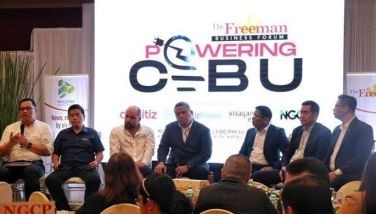State of financial education in the Philippines
The Philippines is one of the fastest-growing economies in the region today, giving the people the chance to have more financial power than before. However, all these will only go to waste if we do not understand how money works and what are the consequences of having bad money habits. Now, everyone seems to talk about ‘financial literacy’ but not a lot about ‘financial education’.
Now I’m not saying that we should not pursue literacy but to me, it is not sustainable unless it becomes institutionalized. We have a lot of government agencies doing their own thing like the Bangko Sentral ng Pilipinas (BSP), DOF (Department of Finance), the Securities and Exchange Commission (SEC), the National Credit Council, the Insurance Commission, the National Anti-Poverty Commission and also DepEd are all trying to work together to raise financial literacy in the country.
Financial education and advocacy programs of the public and private sectors have been identified as key areas in building an improved financial system in the Philippines. The question thus, emerges: what is the state of financial education in the Philippines today?
* 2014 World Bank study estimated 20 million Filipinos saved money but only half had bank accounts.
* 2015 Asian Development Bank (ADB) study revealed that PH does not have a national strategy for financial education and literacy.
* On 2016, Bangko Sentral ng Pilipinas (BSP) released the national strategy for financial inclusion stating that while institutions strive to broaden financial services, financial literacy should also complement such initiatives.
* As per Standard & Poor’s (S&P) Ratings services survey last year, only 25% of Filipinos are financially literate. Meaning, about 75 million Filipinos have no idea about inflation, risk diversification, insurance, compound interest and even the idea of bank savings.
* 10 years after I discovered the stock market, still less than 1 percent of PH population are invested in it.
* More than 80 percent of the working, middle class have no formal financial plan.
There’s a lot of ‘effort’ being provided by the Private Sector with regards to financial literacy but this still a grey area for there is no regulation that determines or points out conflict of interest unlike other countries. There’s no stopping them from selling their financial products under the guise of ‘financial literacy’ as well.
Literacy and Education
Literate and educated are words that people use interchangeably like they are synonymous. They are different and are independent of each other. A literate person might not be educated and vice versa. That we think that one needs to be literate to be educated or educated to be literate is wrong.
What is literacy? One is literate when they can read and write. One does not need to write long essays to be literate. Also, being literate means one can solve simple mathematical problems.
Education, on the other hand, is a broader concept. Education is not just about theories, getting a degree and passing in exams. Education offers knowledge to people. It lets them open their minds to new things and helps them perceive things in new ways.
Both literacy and education helps us in the long run. Unfortunately, we only run behind literacy and evade education. Literacy is needed to mitigate the challenges faced by our working citizens, but education is needed even more for our younger future generations.
* * *
The writer is an RFP® –Registered financial planner and helps people through CERTA, Inc.’s financial education programs, estate planning & investment advisory (www.certa.ph). He’s also a Real Estate Broker, author of the award-winning personal blog– www.vernongo.com; Vice Chair –www.cebucontentcreators.com
- Latest


















